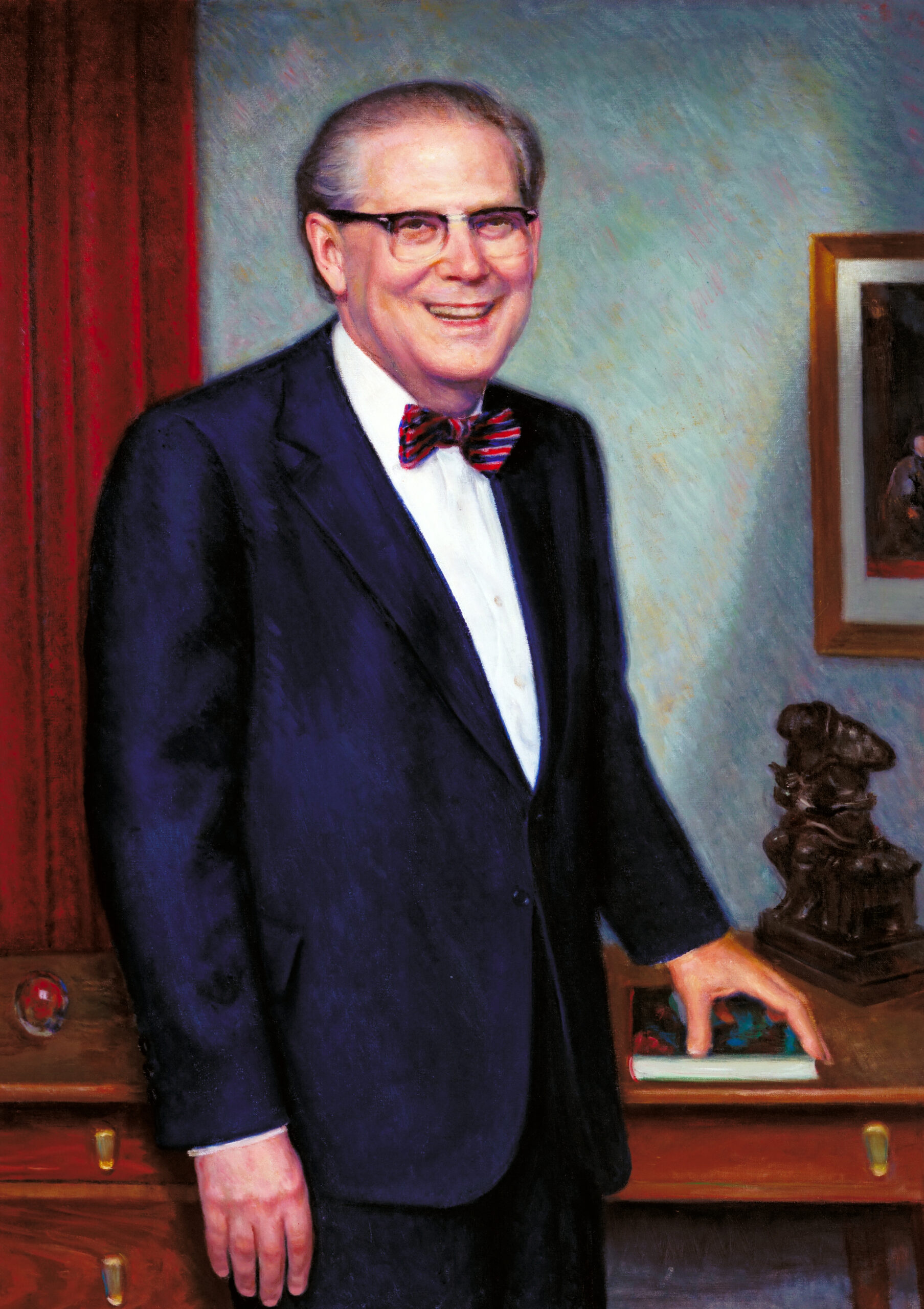Abraham Morris Lilienfeld

Abraham Morris Lilienfeld
- Artist:
- Henry Cooper
- Date:
- 1985
- Medium:
- Oil on canvas
- Dimensions:
- 40 x 29 in.
Abraham Morris Lilienfeld
1920-1984
Lilienfeld, a director of the department of epidemiology at the Johns Hopkins University School of Hygiene and Public Health, was born in New York City. He received his A.B. from The Johns Hopkins University in 1941, and his M.D. in 1944 from the University of Maryland. After completing his internship and residency at West Baltimore General Hospital, Lilienfeld served in the U.S. Army from 1946 through 1947. His career focus then shifted primarily to public health. He held appointments with the U.S. Public Health Service and the New York State Department of Health before returning to Baltimore to complete his M.P.H. in 1949 at the Johns Hopkins University School of Hygiene and Public Health.
In 1950, Lilienfeld joined the faculty of the School of Hygiene and Public Health as a lecturer and rose to assistant professor of epidemiology in 1952. He left Johns Hopkins in 1954 to establish and direct the department of statistics and epidemiological research at Roswell Park Memorial Institute in Buffalo where he also held an appointment as associate professor of preventive medicine at the University of Buffalo School of Medicine.
He returned to Johns Hopkins in 1958 as professor of chronic diseases in the School of Hygiene and Public Health. Concurrently, he served as director of the division of chronic diseases in the department of public health administration. In 1961, he was named chairman of the department of chronic diseases and served in that position until 1970 when the department merged with the department of epidemiology. Lilienfeld was appointed director of epidemiology and led the department until his resignation in 1975 to devote more time to teaching and research.
For the rest of his career, Lilienfeld remained an active scientist, teacher, and administrator at the School of Hygiene and Public Health. He went on to serve as director of the M.P.H. program, acting chairman of the department of mental hygiene, and acting chairman of the department of behavioral sciences. Lilienfeld was a consummate teacher and supportive mentor. Warm and fair-minded, he was highly regarded for his ability to resolve conflict and differences among his peers. Committed to inclusivity, he played a major role in welcoming and guiding minority students, staff, and faculty when they joined the school.
Internationally renowned as a pioneer in chronic disease epidemiology, Lilienfeld’s study protocols have been widely used as models in governmental and academic research. Moreover, he conducted landmark studies of birth defects, cancer, and cardiovascular disease and published extensively in journals, proceedings, and books. Active in professional associations, he served as president of the American Epidemiological Society and was a member of the Institute of Medicine. The American Public Health Association honored Lilienfeld with the John Snow Award and the Bronfman Award. At Johns Hopkins the school of hygiene and public health awarded him the Ernest Lyman Stebbins Medal for outstanding contributions to its teaching programs.
"*" indicates required fields
